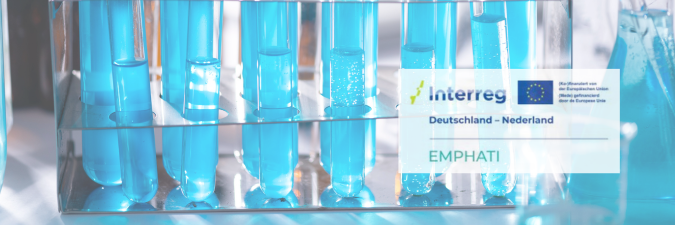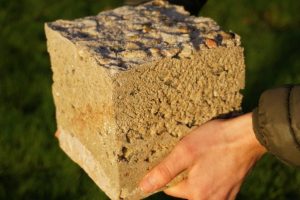Introduction
In the EMPHATI project, Dutch and German companies and research institutions are collaborating on the development of new sustainable and environmentally friendly products based on PHA (polyhydroxyalkanoates). PHAs are natural plastics that are biodegradable, making them a promising and sustainable alternative to fossil-based plastics. As a partner, the BIO Cooperative bridges the gap to the broader plastics processing industry in North Netherlands.
Project Partners
The project partners in the EMPHATI project are: 3N Kompetenzzentrum e.V., Ecoras, bekuplast GmbH, TKT Kunststoff-Technik GmbH, H&P Moulding Emmen B.V., IST Ficotex e.K., Hochschule Bremen, NHL Stenden, BINDER 3D B.V., Avans Hogeschool, Hanzehogeschool Groningen, and Netzwerk Oberfläche NRW e.V.
Project Objective
PHAs differ from other biopolymers like polylactic acid in their superior biodegradability. Additionally, the structural diversity of PHAs (monomers, homopolymers, random and block copolymers, functional and graft copolymers) such as PHB and PHBV allows for the production of products with variable properties. In particular, short-chain PHAs are considered to have a high potential for substituting oil-based polypropylene (PP). However, current production volumes are relatively low compared to high production costs, resulting in higher product prices (7-12 €/kg). A potential approach to reduce costs is incorporating natural fibers into the production of PHA composites, without affecting mechanical properties, while improving impact resistance and biodegradability in terrestrial environments.
The goal of this cross-border project is therefore to develop new sustainable and environmentally friendly products based on PHA/PHA blends with natural fibers for selected applications in injection molding and 3D printing in participating production companies. A supporting LCA (Life Cycle Assessment) will also be conducted across the entire lifecycle, from PHA production to end-user and end-use scenarios. The focus is on expanding and further collaborating between Dutch and German companies and research institutions. A key aspect is forming a cross-border cluster along the PHA value chain that connects all stakeholders and facilitates knowledge transfer. Feasibility and pilot studies will be conducted in an open part of the project.
Open Part of the EMPHATI Project
Do you have a good idea? In the open part of the project, new partners can contribute their innovative ideas to the project and develop and test them in subprojects.
What can a subproject be about?
There are two types of subprojects:
- Pilot Study (TRL 3-6)
Pilot studies focus on the development and testing of innovative process methods, techniques, products, and applications related to PHA. Pilot studies may involve various technologies (such as injection molding, fermentation, extrusion, and 3D printing) and different products, including (bio)materials, packaging/materials, and medical applications. - Feasibility Study (TRL 2-3)
A feasibility study involves investigating and analyzing the potential of a PHA project (technical, economic, legal, etc.) with the aim of supporting decision-making through an objective and rational assessment of the strengths, weaknesses, opportunities, and risks of a project. This also includes determining the resources required for project execution and the ultimate chance of success.
Who can apply for a subproject?
Eligible participants are SMEs, institutions, and networks within the Interreg Germany-Netherlands project area. New partners can submit up to two subprojects.
How large can a subproject be?
Pilot studies can last up to 15 months and can be funded up to 50% (maximum €75,000). Feasibility studies can last up to 6 months and can be funded up to 50% (maximum €10,000).
Interested in Participation?
If you are interested in participating in the Open Part of EMPHATI, please contact Daan van Oldeniel, Business Developer at the BIO Cooperative, via d.van.oldeniel@triade.umcg.nl or by phone at 06-31623250. A German translation of the EMPHATI information can be found here.
Duration of EMPHATI
October 2022 – October 2026 (extended with 1 year)
EMPHATI is made possible by:
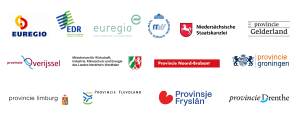
News
Read the latest new on EMPHATI here!
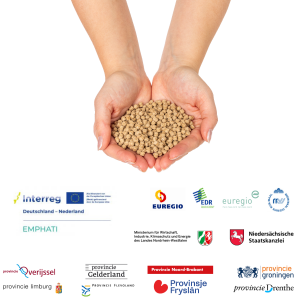
New grant for EMPHATI subproject on wood fibre reinforced PHA
New grant for the project “Processing possibilities for wood fibre reinforced PHA (PWP)”, part of the cross-border Interreg EMPHATI project. The project, submitted and executed by Triple Benefit from Enschede (Netherlands) and Holzmühle Westerkamp GmbH from Visbek (Germany), focuses on innovative methods for processing wood fibre reinforced PHA (polyhydroxyalkanoates).
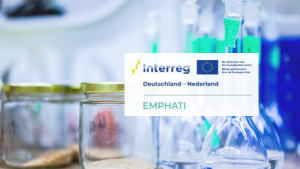
Extension of the Interreg Project EMPHATI until October 2026: More Opportunities for PHA Innovation
The EMPHATI project has been extended by one year and will now run until October 2026. This project, funded by Interreg Germany-Netherlands, focuses on the development of sustainable and environmentally friendly products based on polyhydroxyalkanoates (PHA) and PHA blends with natural fibers.
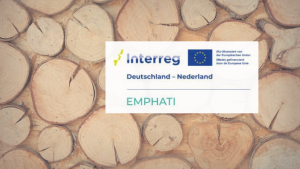
Innovative Processing of Wood Fiber-Reinforced PHA: New EMPHATI Project Launched
The BIO Cooperative proudly announces the launch of the subproject ‘Processing Possibilities for Wood Fiber-Reinforced PHA (PWP)’, which is part of the cross-border Interreg
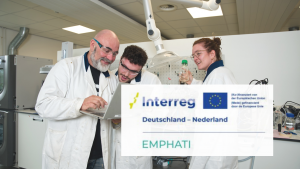
The PHA-Binder Project: Pioneering Sustainable Biomass-Based Binders for the Coatings and Paint Industry
The PHA-Biobinder project, part of the Interreg-funded EMPHATI initiative, aims to develop microplastic-free, sustainable PHA-based binders for eco-friendly innovations in the paint industry.
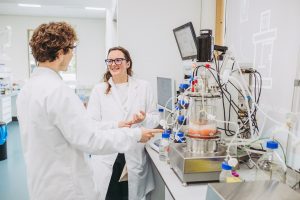
In the spotlight: EMPHATI bring together PHA Pioniers
Chemport Europe dedicated an article to the EMPHATI project in May, in which the BIO Cooperative participates. Read the full article below! EMPHATI Brings Together
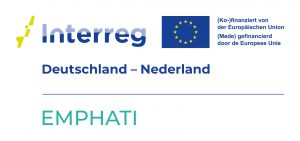
Interreg Grant for New EMPHATI Project by BIO Cooperative
The EMPHATI project is set to commence following the award of an Interreg VIA grant of €1.87 million on Tuesday, December 20. Interreg is a

